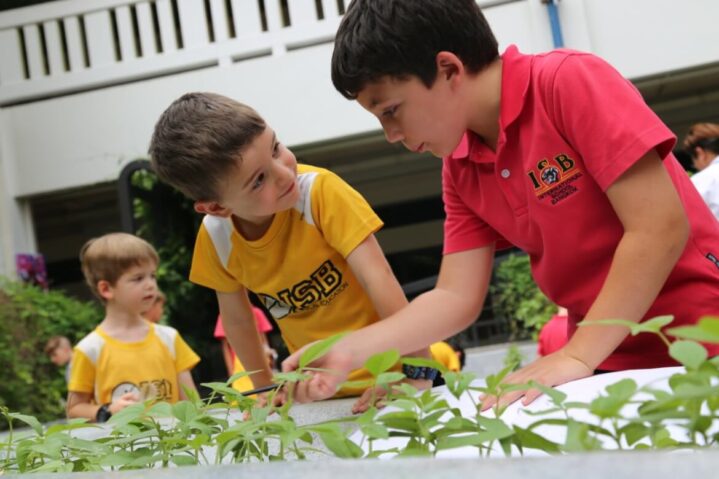
Education matters The world is changing and education should too
Perhaps now more than ever more, our schools need to carefully consider how they can remain relevant to the rapidly changing needs of our society and our students. The world is changing at a faster pace than ever before, while the world of education with all of its traditions often remains inward looking and at times out of touch with societal and job market changes. Educating for the unknown is now an imperative for schools. Many of us will not have predicted the impact of the smartphone, the disruption inherent in many traditional industries (think Uber, Airbnb, digital photography, etc), and the potentially addictive and self-esteem harming effects of social media.
Many more of us will not be able to predict the exponential change that awaits and the inevitable mix of positive and negative impacts on our lives as AI and other technological developments occur. In the world of work, Klaus Schwab, the founder of the World Economic Forum, makes the claim that we are on the brink of a “fourth industrial revolution.” The first industrial revolution involved water and steam to run production, the second utilised electricity for mass production, and the third resulted from electronics and information technology that provided greater automation. The fourth industrial revolution will see technological innovations such as virtual reality, augmented reality, the internet of things, automation, advanced robotics, and so on impacting our lives in exponential ways.
In the World Economic Forum’s, 5 things to know about the future of jobs (Ratcheva & Leopold, September 2018) we are told that, “High-speed mobile internet, artificial intelligence, big data analytics, and cloud technology are set to spearhead companies’ adoption of new technologies between 2018 and 2022” and this will herald quite a shift in the world of work and the skills that schools, colleges and workplaces need to teach. Within 4 years, “newly emerging occupations are set to grow from 16% to 27% of the employee base of large firms globally, while job roles currently affected by technological obsolescence are set to decrease from 31% to 21%.
In purely quantitative terms, 75 million current job roles may be displaced by the shift in the division of labour between humans, machines and algorithms.” Despite fears that automation will result in fewer jobs, fortunately the opposite is predicted to be true with 133 million new jobs expected to emerge in the technological fields of Data Analysts, Software and Applications Developers and E-commerce and Social Media Specialists. Jobs are also anticipated to grow in the more human oriented roles of customer service, sales and marketing, training, organisational development, and innovation specialists. The Jobs Landscape in 2022 (Source: Future of Jobs Report 2018 World Economic Forum)
So what will students of today need to learn to be prepared for what will be quite a significant shift in the short term? Students will, of course, need to be technologically literate and have the skills to compete in an increasingly technological marketplace. Yet, as you will see from the 2022 Skills Outlook table, the ability to think analytically is ranked first, while the very human skills of creativity, critical thinking, innovation, resilience and adaptability are also significant. Importantly, “Emotional intelligence, leadership and social influence as well as service orientation are also set to see particular increase in demand relative to their current prominence today.”
Top 10 Emerging (133 million Jobs)
- Data Analysts and Scientists 2. AI and Machine Learning Specialists 3. General and Operations Managers 4. Software and Applications Developers and Analysts 5. Sales and Marketing Professionals 6. Big Data Specialists 7. Digital Transformation Specialists 8. New Technology Specialists 9. Organisational Development Specialists 10. Information Technology Services
Top 10 Declining (75 million Jobs)
- Data Entry Clerks 2. Accounting, Bookkeeping and Payroll Clerks 3. Administrative and Executive Secretaries 4. Assembly and Factory Workers 5. Client Information and Customer Service Workers 6. Business Services and Administration Managers 7. Accountants and Auditors 8. Material-Recording and Stock-Keeping Clerks 9. General and Operations Managers 10. Postal Service Clerks
2022 Skills Outlook (Source: Future of Jobs Report 2018 World Economic Forum)
Growing
- Analytical thinking and innovation 2. Active learning and learning strategies 3. Creativity, originality and initiative 4. Technology design and programming 5. Critical thinking and analysis 6. Complex problem-solving 7. Leadership and social influence 8. Emotional intelligence 9. Reasoning, problemsolving and ideation 10. Systems analysis and evaluation
Declining
- Manual dexterity, endurance and precision 2. Memory, verbal, auditory and spatial abilities 3. Management of financial, material resources 4. Technology installation and maintenance 5. Reading, writing, math and active listening 6. Management of personnel 7. Quality control and safety awareness 8. Coordination and time management 9. Visual, auditory and speech abilities 10. Technology use, monitoring and control
Schools such as the International School Bangkok (ISB) have taken significant steps to make education more relevant to students’ needs of today. Education in technology is of course now more prominent, even among our younger students, but developing technological skills is nowhere near as challenging or as helpful as developing students that can think critically, be creative, innovate, adapt to changing circumstances, make ethical decisions, contribute to a global society, self manage, and reach a high level of social intelligence.
In his work, Future Wise: Educating our Children for a Changing World, Professor David Perkins (Harvard Graduate School of Education) argues that schools should focus more on what he terms “life worthy learning” – learning that is relevant to students now and in the uncertain future that they face. The most important learning should be about equipping students with the knowledge, skills, values and attitudes they will need in all the important aspects of their lives. Once students graduate from school, they need to know how to live healthy lives, how to make the right ethical decisions, how to contribute to society, how to collaborate well with people from around the globe, how to self manage, and how to adapt to a rapidly changing world. In part inspired by Perkin’s work, ISB adopted a brand new Vision, a set of 6 Learner Attributes, and 8 Values that we wish to instil in our students.
Our Vision compels us to “enrich communities”, our Values help guide students to make ethical decisions throughout their lives, and our Learner Attributes enable students to become more Creative, Globally Minded, Adaptable, Value Driven, Socially Intelligent, and Self-Managing. These provide the framework for students to be fulfilled and successful at school, college, work and beyond. Importantly, the values and attributes are timeless and will stand students in good stead as society and work change. ISB has always offered a very strong academic programme and our students are well prepared academically for college.
Our students need more than this, however, and thanks to the dedication and inspiration of our research and development teams, ISB continuously develops and adapts to ensure we provide “life worthy learning” to our students. In the words of Professor Perkins, “We teach a lot that isn’t going to matter, in a significant way, in students’ lives. There’s also so much we aren’t teaching that would be a better return on investment.” We firmly believe that ISB is now investing its time and resources in the right ways to help our children be better prepared for the challenges and successes that await them and we believe this should be the practice of education institutions around the world.




